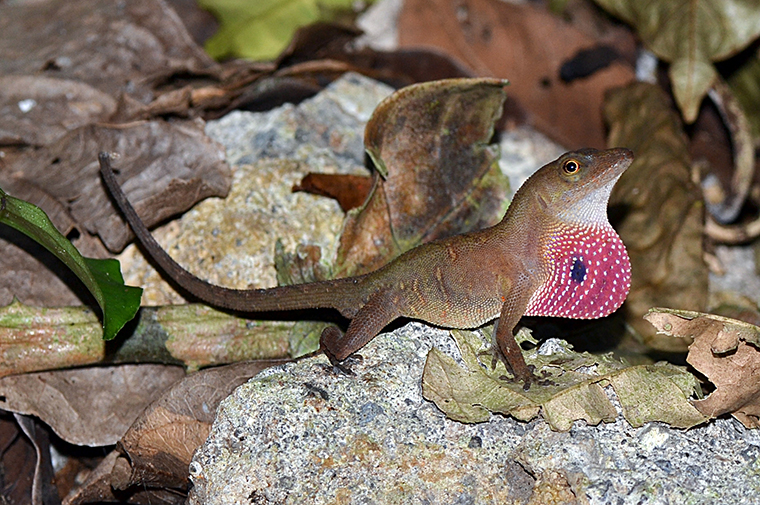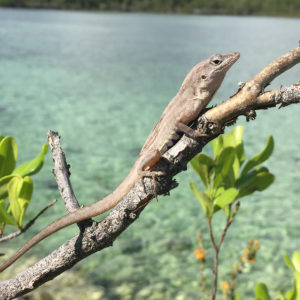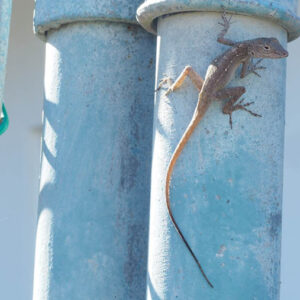
A research team led by a Washington University in St. Louis biologist was awarded $1.2 million for a CRISPR-based gene editing study of Anolis lizards.
Jonathan Losos, the William H. Danforth Distinguished Professor and professor of biology in Arts & Sciences, was awarded the three-year grant from the Human Frontier Science Program Organization, based in Strasbourg, France. His grant is one of only 28 selected from a candidate pool of more than 700 teams involving scientists with laboratories in more than 50 different countries.

"Thanks to breakthroughs in the ability to sequence DNA at large scale, many researchers are comparing the genomes of different species to try to identify the genes responsible for evolutionary adaptation," Losos said. "Our project combines this approach with recent advances in gene editing to not only identify candidate genes, but to actually test their effects.
"Because of the extensive body of knowledge about their evolutionary ecology, Anolis lizards are the ideal group to combine genomic and organismal studies at multiple levels - including anatomy, physiology and behavior," Losos said. "We now have the capability to identify genes potentially involved in adaptation and then to assess the traits they produce and how those traits may be beneficial in the species' particular environment."
Team member Doug Menke, an associate professor at the University of Georgia, developed techniques for creating the world's first gene-edited reptiles: albino lizards. This new study will continue to advance the techniques.

Fortune - and nature - favors the bold
First, the researchers will sequence the genomes of 200 species of Anolis lizards - primarily those from Central America - a group that Losos has spent his career studying. Species of anoles, as they are called, are renowned for evolving similar features when faced with similar environmental challenges.
By comparing species that live in similar circumstances - such as cool mountain forests - the researchers will look for DNA changes that have occurred only in those species and not in others. Those genetic changes potentially are the ones that have produced adaptation to the environmental condition shared by those species.
Then, using CRISPR, those changes will be introduced in the laboratory to eggs of one species, the brown anole, to see if the resulting individuals exhibit the trait in question - such as the ability to be active at low temperatures.
Finally, the individual brown anoles will be monitored in experimental conditions to see if the genetic trait leads to better growth or survival.
In addition to Menke, the team includes researchers from Tohoku University in Sendai, Japan, and Macquarie University in Sydney, Australia.

Hot time in the city: Urban lizards evolve heat tolerance
Losos is the director of the Living Earth Collaborative, a center dedicated to advancing the study of biodiversity to help ensure the future of Earth's species in their many forms. He also leads an active research laboratory focused on the behavioral and evolutionary ecology of lizards.






